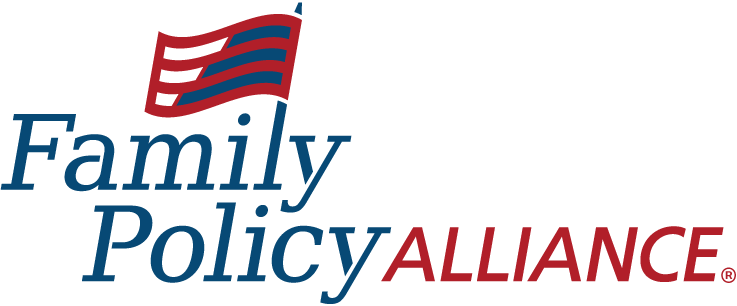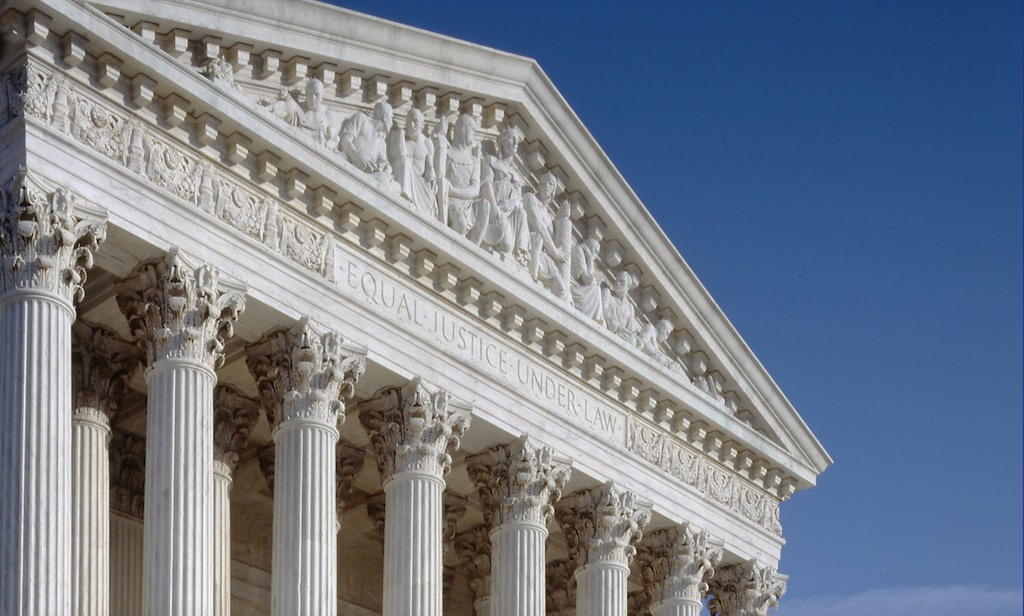
Friends,
Amidst the unexpected events of the last two weeks – including a leak at the Supreme Court and the firebombing of our friends in Wisconsin – I wanted to share some of the other work that your support is allowing us to do behind the scenes.
This week, Family Policy Alliance joined our ally, Independence Law Center, and 32 other state organizations in our alliance in sending a brief to the U.S. Supreme Court! We’re asking the Court to let states decide whether to cover abortion providers under their state Medicaid programs.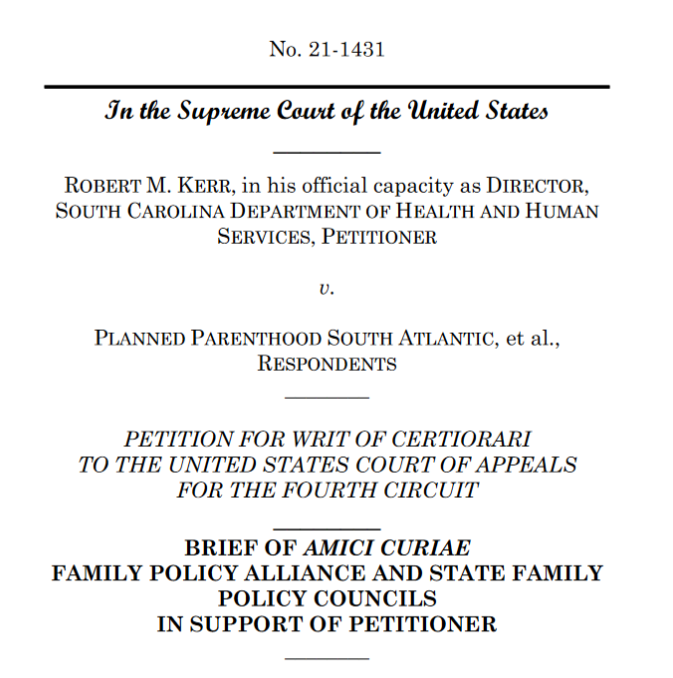
We filed the friend-of-the-court brief in a case known as Kerr v. Planned Parenthood South Atlantic. The case came out of South Carolina, where the state Medicaid program doesn’t consider abortion providers to be “qualified” providers for Medicaid recipients. The regional Planned Parenthood and a Medicaid recipient sued for Medicaid to cover her birth control at a Planned Parenthood facility.
But as our CEO Craig DeRoche said in a statement we put out yesterday, “Here’s what this case is about: Planned Parenthood wants to force taxpayers to fund their abortion business, and they’ll do whatever it takes to make that happen. But states should be able to tell Planned Parenthood ‘no,’ just as they should be able to say no to abortion itself. This case is about states’ rights under the Medicaid statute to make those critical decisions.”
With the very real possibility of a Roe overturn, state policy on abortion matters more than ever – and we’re honored to host an alliance of 40 state Family Policy Councils who are already on the ground standing for life. In fact, it was that alliance we partnered with in submitting this brief. Independence Law Center (the legal arm of Pennsylvania Family Council) led the effort, and we were grateful to be a part of it. Here’s what their Chief Counsel, Randy Wenger, had to say:
“States are permitted to decide what providers are qualified under Medicaid. If states like South Carolina want to use limited resources to promote holistic healthcare rather than providers that are focused only on abortion and related services, they should be free to do so. That’s the best way to provide high quality healthcare to the women of our states.”
You can read our full release and access the brief here.
Thank you for joining us as we continue to stand for life!

Meridian Baldacci
Director of Strategy
P.S. Of course, this isn’t the only abortion-related case facing the Supreme Court. The country is waiting with bated breath for a final decision from the Court in the Dobbs case (which challenged Roe v. Wade). Already, we’re preparing for the possibility of a world After Roe. To make sure you are in the loop on the latest, be sure to follow us on your favorite social media platform. We’re on Facebook, Twitter, and Instagram!
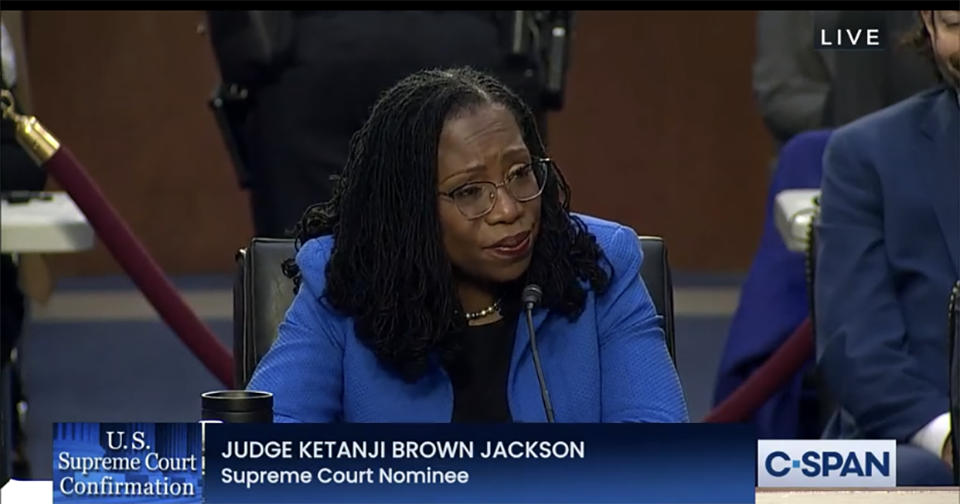
Today, the Senate voted to confirm Judge Ketanji Brown Jackson to be an Associate Justice of the United States Supreme Court 53-47. Here’s our statement:
“If there’s one thing Americans must take note of today it’s this: elections matter. The Senate just voted to confirm someone whose decisions will impact American law and culture for years to come. And it must not be lost today that every vote in favor of Judge Jackson was made by someone elected by the people of his or her state – and someone who must answer to that same electorate.
“Americans must hold our U.S. Senators accountable in the upcoming election to ensure pro-life and pro-family governance at all levels. We call on Americans to fully engage from the top of the ballot to the bottom in these upcoming elections to protect our God-given and constitutional freedoms for future generations.”
While Judge Jackson is highly credentialed, her statements both recent and past have raised concerns about how she will rule in the nation’s highest court and how her decisions will affect women, children, and the rights of everyday Americans.
Here are our top 5 concerns about Judge Jackson:
- Judge Jackson believes abortion is a constitutional right under the 14th Amendment.
When asked about 14th Amendment protections, Judge Jackson’s answer included, “In Roe v. Wade… and Planned Parenthood v. Casey…the Supreme Court recognized a right to abortion subject to limitations articulated.” - Judge Jackson said she does not know when life begins, or if preborn children feel pain.
“When does life begin, in your opinion?” –Sen. Kennedy, LA
“Senator, I don’t know.” –Judge Jackson
.
“Can an unborn child feel pain at 20 weeks in the birthing process?” –Sen. Graham, SC
“Senator, I don’t know.” –Judge Jackson - Judge Jackson’s previous rulings on child pornography cases raise grave concerns.
In every child pornography case in which Jackson had discretion, she sentenced below the minimum recommendation of the federal sentencing guidelines. - Judge Jackson could not define a woman.
Can you provide the definition of the word, ‘woman’?” –Sen. Blackburn, TN
“I can’t. Not in this context. I’m not a biologist.” –Judge Jackson
.
“Do you agree with Justice Ginsburg that there are physical differences between men and women that are enduring?” –Sen. Blackburn, TN
“Senator, respectfully, I’m not familiar with that particular quote or case, so it’s hard for me to comment whether or not.” –Judge Jackson - Judge Jackson would not say whether individuals have natural rights.
When asked, “Do you hold a position on whether individuals possess natural rights, yes or no?” Judge Jackson answered, “I do not hold a position on whether individuals possess natural rights.”
When Judge Jackson sits on the Supreme Court, she will be bringing with her deeply concerning perspectives on key issues like life, biological sex, and more.
Her confirmation is a critical reminder of why elections matter. Family Policy Alliance is committed to engaging in federal and state elections to ensure pro-life and pro-family governance across the nation. As America prepares for the upcoming November election, we welcome you to partner with us.
Today, America was reminded that elections matter. This fall, let’s act on that conviction.
Sincerely,

Nicole Hudgens
Government Affairs
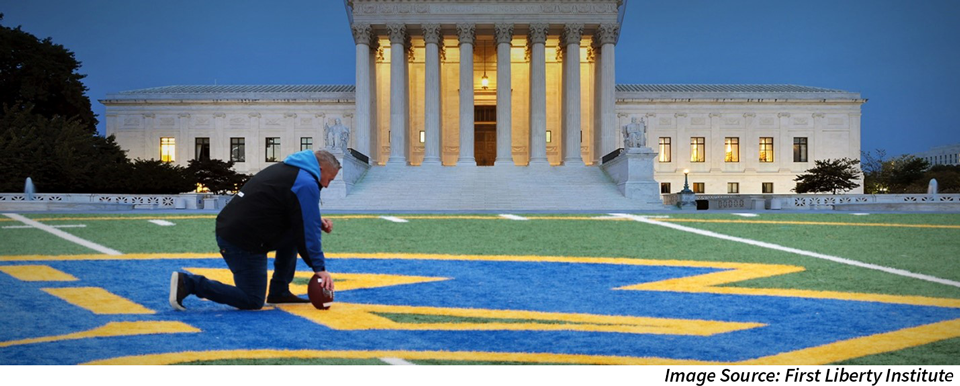
| A high school football coach who was fired for praying on the field after games is about to have his case heard in the U.S. Supreme Court. And you – through your support and engagement with Family Policy Alliance – are in the thick of the action as it heads to the Court.
|
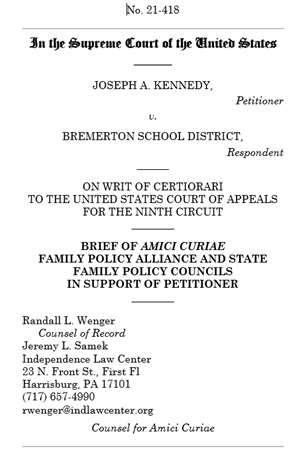 When Joe Kennedy coached the high school football team in Bremerton, Washington, he regularly prayed alone briefly at the 50-yard line following games. At one point, a couple of his students asked if they could join. He responded that it’s a free country, and so they did.
When Joe Kennedy coached the high school football team in Bremerton, Washington, he regularly prayed alone briefly at the 50-yard line following games. At one point, a couple of his students asked if they could join. He responded that it’s a free country, and so they did.
Eventually, nearly half of the team had joined him, along with students and even coaches from the other teams. Suddenly, he was told by the school that he could no longer pray publicly. At first, he followed their order, but then he felt that his freedoms of speech and religion were being violated, and so he continued his prayers.
The school district fired him, saying that they needed to avoid violating the Establishment Clause. At issue in the case is whether Coach Kennedy has speech and religious rights to pray briefly in public.
With your support, Family Policy Alliance is engaging directly on this case. Today, we filed an amicus (friend of the court) brief with the U.S. Supreme Court. Justices regularly read such briefs and sometimes even cite them in their opinions.
Among other things, this powerful brief (which can be found on the Supreme Court website) points out that public schools allow all sorts of highly controversial beliefs, while singling out religious views for particular discrimination:
“[T]raditional religious beliefs are uniquely targeted for censure, while a host of comparable, religious-like beliefs receive a free pass or even endorsement. Rather than creating ‘neutrality between religion and religion, and between religion and nonreligion,’ a reasonable observer would comprehend that traditional religion alone is being treated as poisonous and inappropriate in society.” |
Family Policy Alliance filed the brief together with 29 state family policy councils from around the country, including Pennsylvania’s Independence Law Center, which authored the brief. Family Policy Alliance is pleased to host this alliance of independent state-based family policy councils around the country. Together, this alliance advocates on behalf of more than a million citizens across the nation.
Please pray for this critical case. And thank you for making this effort possible with your support.


John Paulton
Director of State Alliances
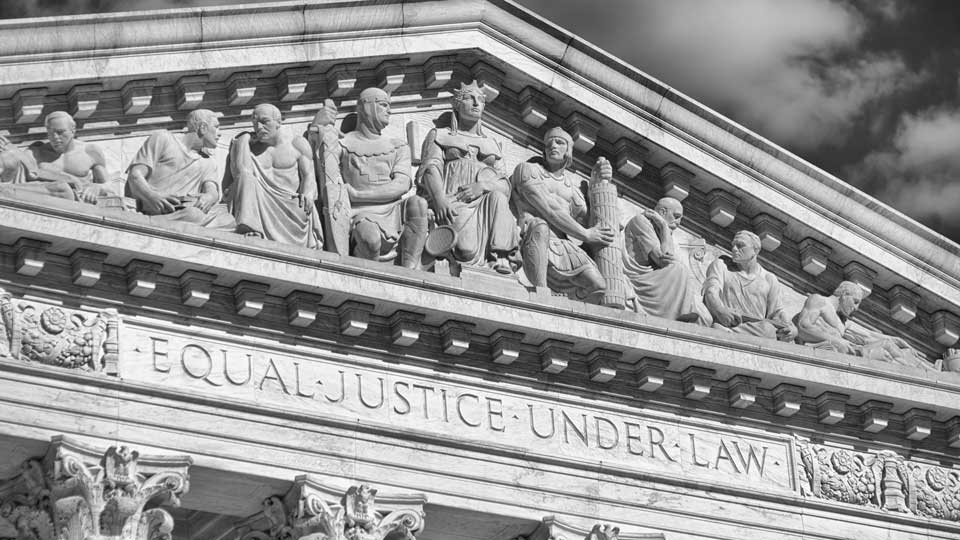
Dear Friend,
On Monday, Family Policy Alliance and 29 of our state allied organizations filed an amicus (friend of the court) brief with the U.S. Supreme Court on a critical religious freedom case.
Just before the holidays, you may have heard that the U.S. Supreme Court agreed to hold an emergency hearing on the consolidated case against the Biden Administration’s vaccine mandate, which is being imposed on employers with more than 100 employees via the Occupational Safety and Health Administration (OSHA).
Working quickly, our alliance’s legal team – led in this case by our allied organization in Texas – put together a powerful brief for the nine justices, who will hear the case on Friday. Here is our message to them:
- The brief articulates the centrality and importance of religious freedom in the United States – and highlights the many challenges this mandate would impose on employers and employees alike.
- The brief points out that this mandate puts employers in the difficult position of determining which employees’ beliefs are authentic and which are not – which is especially challenging in a secular workplace, but also presents challenges for faith-based ministries. The mandate would essentially turn employers into enforcers of a dictatorial, overreaching federal requirement.
- The brief also recounts the history of overreach of the “administrative state” – in this case, OSHA – especially when it comes to disregard for religious liberty. The brief argues that this issue ought to be debated and worked out in Congress or the state legislatures, where religious convictions have historically been given much more respect.
Family Policy Alliance remains deeply committed to advocating for your God-given religious liberty and for settling these issues through the legislative process – just as our Founding Fathers intended. And we are thankful for you and your support that makes possible our advocacy before the highest court in the land.
Standing for the family of believers, 

Joseph Kohm, III, Esq.
Director, Public Policy
© 2022 Family Policy Alliance. All Rights Reserved.
Originally Published 1/5/22 at familypolicyalliance.com.
